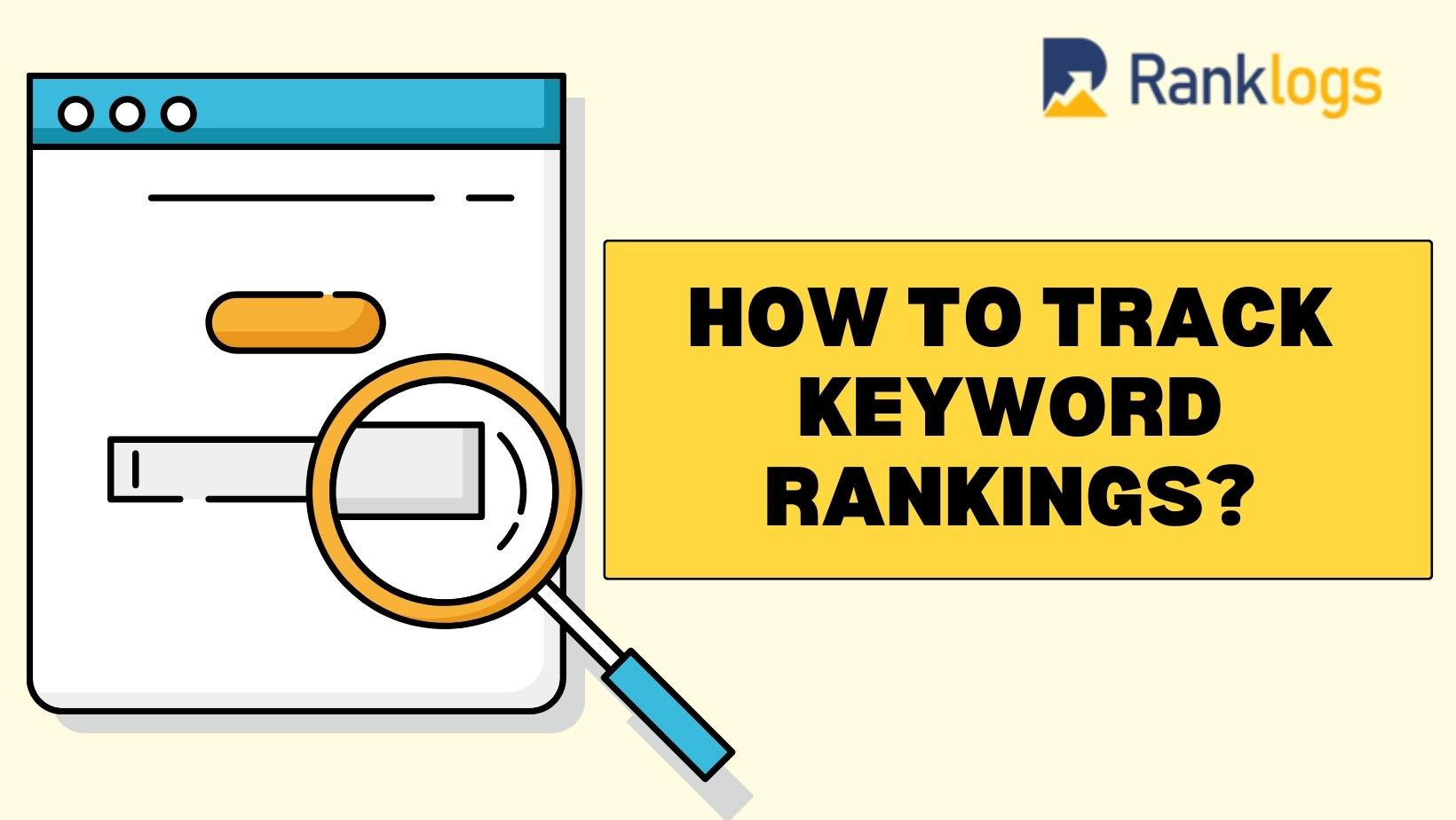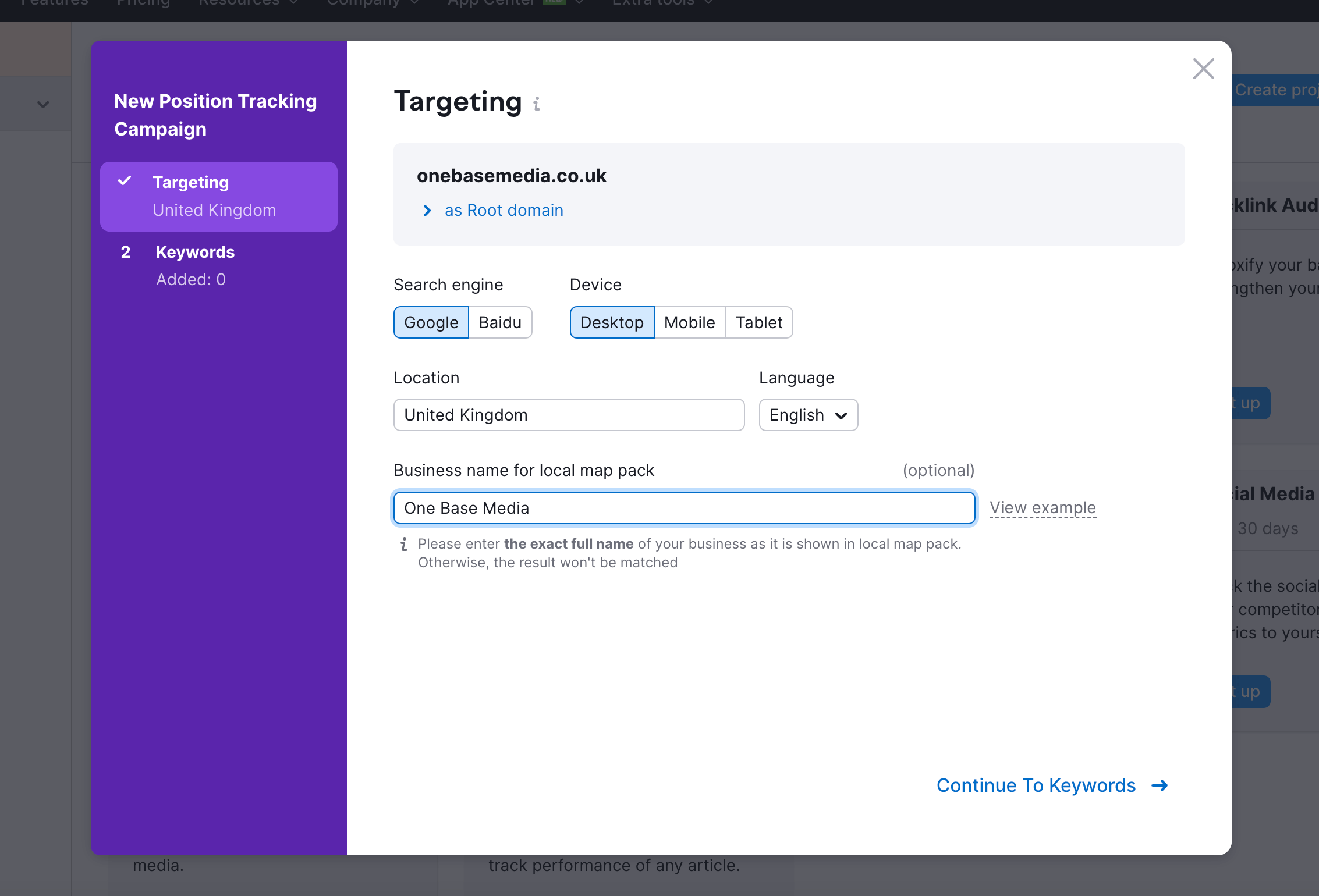In the digital age, the significance of "track keyword" cannot be overstated. This term is pivotal for businesses, marketers, and content creators striving to optimize their online presence. Understanding how to effectively track keywords can make the difference between a successful digital strategy and one that falls flat. In this comprehensive guide, we delve into the nuances of tracking keywords, offering insights and techniques that will elevate your SEO game.
With an ever-increasing amount of content being published daily, standing out in search results has never been more challenging. Tracking keywords is a strategic approach that helps tailor content to meet the demands of both search engines and users. By knowing what keywords are trending, you can align your content strategy with current interests and search behaviors, thus enhancing visibility and engagement. This guide will walk you through the process of tracking keywords, explaining its importance and providing practical tips for implementation.
Whether you're a seasoned SEO professional or just starting your journey, understanding how to track keywords effectively can provide a competitive edge. This guide is structured to offer detailed insights into various aspects of keyword tracking, from basic principles to advanced strategies. By the end, you will have a comprehensive understanding of how to harness the power of keyword tracking to boost your online presence and achieve your digital marketing goals.
Table of Contents
- What is Track Keyword?
- Importance of Keyword Tracking
- How to Identify Keywords to Track
- Tools for Tracking Keywords
- Tracking Keyword Performance
- Analyzing Competitor Keywords
- Integrating Keyword Tracking with SEO Strategies
- Case Studies: Successful Keyword Tracking
- Common Mistakes in Keyword Tracking
- Future Trends in Keyword Tracking
- FAQs About Track Keyword
- Conclusion
What is Track Keyword?
Track keyword refers to the practice of monitoring specific words or phrases that users enter into search engines. This process involves analyzing search data to understand which keywords are driving traffic to your website. By tracking these keywords, businesses can optimize their content to improve visibility and attract more visitors. Understanding the track keyword process is fundamental to developing an effective SEO strategy.
Understanding Keyword Tracking
Keyword tracking involves the continuous monitoring of keywords to assess their performance over time. It helps in identifying trends, understanding user intent, and measuring the effectiveness of SEO efforts. This process is crucial for adapting marketing strategies in response to changing search patterns and maintaining a competitive edge.
Why Track Keywords?
Tracking keywords provides valuable insights into how your target audience is searching for information online. It enables you to optimize your content to better meet their needs, thereby improving your search engine rankings and increasing organic traffic. Moreover, it helps identify new opportunities for content creation and improvement.
Importance of Keyword Tracking
Keyword tracking is an essential part of any digital marketing strategy. It allows businesses to understand what is working and what needs improvement in their SEO efforts. By tracking keywords, marketers can make data-driven decisions to enhance their content strategy and achieve their business goals.
Enhancing SEO Performance
Consistent keyword tracking helps in fine-tuning your SEO strategy. By analyzing keyword performance, you can identify which keywords are driving traffic and conversions, and which ones need more attention. This data is invaluable for optimizing content and improving search engine rankings.
Adapting to Market Changes
The digital landscape is constantly evolving, with new trends and consumer behaviors emerging regularly. Keyword tracking allows businesses to stay ahead of these changes by providing insights into what users are searching for. By adapting your strategy based on this data, you can remain relevant and competitive in your industry.
How to Identify Keywords to Track
Identifying the right keywords to track is the first step in building a successful keyword tracking strategy. This involves researching and selecting keywords that align with your business objectives and target audience.
Conducting Keyword Research
Keyword research involves using tools and techniques to discover which keywords your target audience is searching for. This process helps identify high-volume, low-competition keywords that can drive traffic to your site. By understanding what your audience is interested in, you can create content that meets their needs and improves your search rankings.
Prioritizing Keywords
Once you've identified potential keywords, it's important to prioritize them based on their relevance to your business goals. Focus on keywords that align with your products or services and have the potential to drive conversions. Consider factors such as search volume, competition, and user intent when selecting keywords to track.
Tools for Tracking Keywords
There are numerous tools available to assist with keyword tracking. These tools provide insights into keyword performance, helping you optimize your content and improve your SEO strategy.
Popular Keyword Tracking Tools
- Google Analytics
- SEMrush
- Ahrefs
- Moz Pro
- Keyword Tool
Each of these tools offers unique features and benefits, making them suitable for different needs and budgets. It's important to choose a tool that aligns with your specific requirements and provides the insights you need to succeed.
Tracking Keyword Performance
Once you've identified and prioritized your keywords, it's important to monitor their performance. This involves analyzing data to understand how your keywords are impacting your search rankings and traffic.
Analyzing Keyword Data
Keyword performance analysis involves reviewing metrics such as search volume, click-through rates, and conversion rates. This data provides insights into how well your keywords are performing and where improvements can be made. By regularly analyzing this data, you can make informed decisions to enhance your SEO strategy.
Adjusting Your Strategy
Based on your keyword performance analysis, you may need to adjust your strategy to improve results. This could involve updating content, targeting new keywords, or optimizing existing pages. By continuously refining your approach, you can maximize your SEO efforts and achieve your business goals.
Analyzing Competitor Keywords
Understanding how your competitors are using keywords can provide valuable insights for your own strategy. By analyzing competitor keywords, you can identify opportunities and gaps in your own approach.
Conducting Competitor Analysis
Competitor analysis involves researching the keywords that your competitors are targeting and how they are performing. This information can help you identify successful strategies and areas where you can improve. By understanding what your competitors are doing, you can develop a more effective keyword tracking strategy.
Identifying Opportunities
By analyzing competitor keywords, you can identify opportunities to target new keywords or improve your existing content. This can involve targeting keywords that your competitors are not focusing on, or creating content that provides more value to users. By leveraging these insights, you can gain a competitive edge in your industry.
Integrating Keyword Tracking with SEO Strategies
Keyword tracking should be an integral part of your overall SEO strategy. By integrating keyword tracking with your SEO efforts, you can optimize your content and improve your search engine rankings.
Aligning Keyword Tracking with SEO Goals
It's important to align your keyword tracking efforts with your overall SEO goals. This involves selecting keywords that support your business objectives and optimizing your content to meet these goals. By aligning your keyword tracking with your SEO strategy, you can achieve better results and maximize your return on investment.
Optimizing Content for Keywords
Once you've identified and prioritized your keywords, it's important to optimize your content to target these keywords. This involves incorporating keywords into your content in a natural and meaningful way, ensuring that your content is relevant and valuable to users. By optimizing your content for keywords, you can improve your search rankings and drive more traffic to your site.
Case Studies: Successful Keyword Tracking
Examining case studies of successful keyword tracking can provide valuable insights and inspiration for your own strategy. These case studies demonstrate how businesses have used keyword tracking to achieve their SEO goals and improve their online presence.
Case Study 1: E-commerce Success
An e-commerce company was able to increase their organic traffic by 150% by implementing a comprehensive keyword tracking strategy. By identifying and targeting high-volume, low-competition keywords, they were able to optimize their content and improve their search rankings. This resulted in a significant increase in traffic and conversions, demonstrating the power of effective keyword tracking.
Case Study 2: Local Business Growth
A local business was able to increase their online visibility and attract more customers by tracking and targeting local keywords. By focusing on keywords that were relevant to their local area, they were able to improve their search rankings and reach a wider audience. This resulted in increased foot traffic and sales, highlighting the importance of targeting local keywords in your strategy.
Common Mistakes in Keyword Tracking
While keyword tracking can provide valuable insights, there are common mistakes that businesses should avoid to achieve the best results. By understanding these mistakes, you can refine your strategy and maximize your SEO efforts.
Ignoring Long-Tail Keywords
One common mistake is focusing solely on high-volume keywords and ignoring long-tail keywords. Long-tail keywords often have less competition and can drive targeted traffic to your site. By incorporating long-tail keywords into your strategy, you can improve your search rankings and attract more qualified visitors.
Not Regularly Updating Keywords
Another mistake is not regularly updating your keyword list. The digital landscape is constantly changing, and new keywords and trends are emerging all the time. By regularly refreshing your keyword list, you can stay ahead of the competition and maintain your online visibility.
Future Trends in Keyword Tracking
As technology continues to evolve, so too does the field of keyword tracking. Staying informed of future trends can help you adapt your strategy and remain competitive in the digital landscape.
AI and Machine Learning
AI and machine learning are increasingly being used in keyword tracking and analysis. These technologies can provide more accurate insights into keyword performance and help businesses optimize their content more effectively. By leveraging AI and machine learning, you can enhance your keyword tracking strategy and achieve better results.
Voice Search Optimization
With the rise of voice search, optimizing for voice queries is becoming increasingly important. This involves targeting conversational keywords and phrases that users are likely to use when speaking to their devices. By incorporating voice search optimization into your strategy, you can reach a wider audience and improve your search rankings.
FAQs About Track Keyword
- What is the primary purpose of tracking keywords?
The primary purpose of tracking keywords is to monitor and analyze the performance of specific words or phrases that drive traffic to your website. This helps in optimizing content and improving search engine rankings.
- How often should I update my keyword list?
It's recommended to update your keyword list regularly, at least every few months, to stay current with emerging trends and search patterns.
- Are long-tail keywords important in keyword tracking?
Yes, long-tail keywords are important as they often have less competition and can drive highly targeted traffic to your site, improving your chances of conversion.
- What tools are best for tracking keywords?
Popular tools for tracking keywords include Google Analytics, SEMrush, Ahrefs, Moz Pro, and Keyword Tool. Each offers unique features that cater to different needs.
- How can I integrate keyword tracking with my SEO strategy?
Integrate keyword tracking with your SEO strategy by aligning your keywords with your business goals, optimizing content accordingly, and regularly analyzing performance to make data-driven decisions.
- What is the impact of voice search on keyword tracking?
Voice search is changing the way users interact with search engines, emphasizing the need for optimizing keywords to include conversational phrases and questions.
Conclusion
Tracking keywords is a critical component of a successful digital marketing strategy. By understanding the importance of keyword tracking and implementing effective strategies, businesses can improve their search engine rankings, drive more traffic, and achieve their business goals. Whether you're just starting with keyword tracking or looking to refine your existing strategy, this guide provides the insights and tools needed to succeed in the ever-evolving digital landscape.
As you continue to explore the world of keyword tracking, remember to stay informed of emerging trends and technologies. By keeping up with the latest developments and continuously refining your approach, you can maintain a competitive edge and maximize your online presence.
For more information on keyword tracking and other digital marketing strategies, consider visiting reputable sources such as Moz and Search Engine Land. These platforms offer valuable insights and resources to help you stay ahead in the dynamic world of SEO.
Mastering The Art Of Search Engine Optimization Tracker: A Comprehensive Guide
The Remarkable Journey Of Neil Flynn: A Life In Comedy And Drama
Unveiling The Phenomenon: Spider Man Sophie Rain


